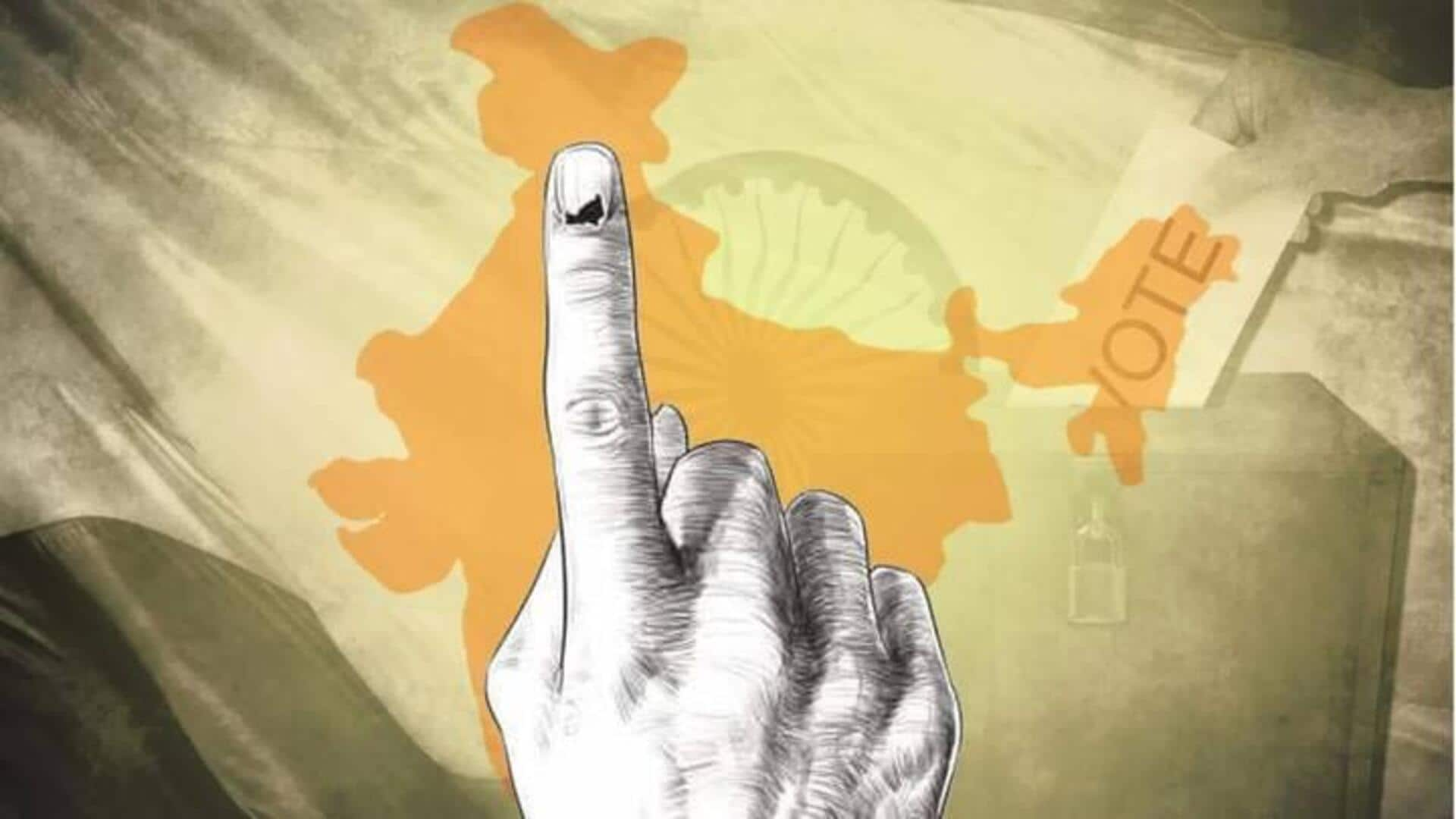
Lok Sabha election dates out; to be held from April-June
What's the story
After months of twists and turns, the Election Commission of India (ECI) has finally announced the dates for the 2024 Lok Sabha elections. The polls will be held in seven phases, beginning on April 19. The results for all elections, including by-elections, assembly elections, and general elections will be announced on June 4. With this announcement, the Model Code of Conduct (MCC) is now in effect. It will stay in place until the Lok Sabha election results are declared.
Context
Why does this story matter?
The tenure of the current Lok Sabha ends on June 16, and a new House has to be constituted before that. Similarly, the terms of the Arunachal Pradesh, Sikkim, Andhra Pradesh, and Odisha assemblies will end on June 2, June 11, and June 24, respectively. Depending on the results, the party or an alliance of parties that gets the majority of seats (272 out of 545 seats) will stake a claim to form the government.
3 states
Schedule of assembly elections
The voting for the first phase will take place on April 19, the second phase on April 26, the third phase on May 7, the fourth phase on May 13, the fifth phase on May 20, the sixth phase on May 25, and the seventh phase on June 1. Meanwhile, assembly elections for Andhra Pradesh will be held on May 13, while in Arunachal Pradesh and Sikkim, they will be held on April 19.
Odisha
Odisha election will be held in 2 phases
The election in Odisha will be held in two phases from May 13 and 20. According to the Lok Sabha election dates release, voting in Jammu and Kashmir (J&K) will be done in five phases, with the results counted on June 4. The first phase of voting will take place on April 19, the second phase on April 26, the third phase on May 7, the fourth phase on May 13, and the fifth phase on May 20.
Facts
ECI appointed 2 new election commissioners
In preparation for the polls, the ECI on Thursday appointed two new election commissioners following Arun Goel's surprise resignation and Anup Chandra Pandey's retirement in February. Before the appointments, the ECI only had Chief Election Commissioner Rajiv Kumar. The ECI is responsible for conducting free and fair elections in India. The Constitution empowers the ECI with the authority to direct, supervise, and oversee elections to Parliament, state legislatures, the post of President, and the office of Vice President of India.
Numbers
Nearly 97 crore people eligible to cast their votes
Nearly 97 crore individuals are eligible to vote in the upcoming elections. Of this, 1.8 crore are first-time voters. In this election, the ruling Bharatiya Janata Party (BJP) hopes to capture 400 seats for the National Democratic Alliance (NDA) and 370 for the party itself. Whereas opposition parties have united under the banner of the Indian National Developmental Inclusive Alliance (INDIA) to challenge the ruling BJP-led NDA.